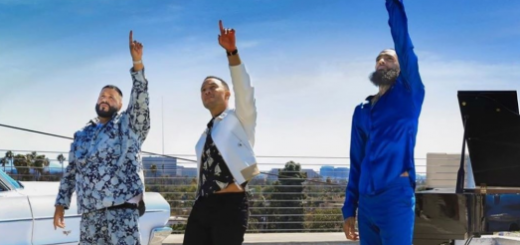“Glory” by Common (ft. John Legend)
Common’s “Glory” was created specifically for a movie entitled Selma (2014), which centers on a particular episode during the 1960s’ Civil Rights Movement. The Civil Rights Movement is a popular moniker given to the African-American quest for equal rights and justice in the United States.
It was at its historical peak during the 1950s and 1960s. And a lot was accomplished in said regard during that time. However, many people, including Common, would argue that the Civil Rights Movement is still ongoing. So it is with that framework in mind that we are analyzing this piece, a foundation we felt a need to establish beforehand since some of the wording is really ambiguous.
1st Verse
For instance, at the beginning of the first verse, Common quotes a well-known Biblical verse, though in a roundabout way. Now said verse predates the Civil Right Movement by 2,000+ years and, as originally intended, points to a particular individual. But as used in the song, what the vocalist is putting forth is that, as ordained by God, the enemies of the Civil Rights Movement will not prevail, even if from a worldly standpoint they may be stronger.
Then Common points to the idea of how there are many heroes of the Movement – or “legends” as he calls them. It would seem he is speaking specifically to the martyrs and others who have put their physical safety on the line in the name of the cause, that cause being combating injustices perpetrated against them because of their skin color.
And Common goes on the metaphorically note how seriously such individuals take the pursuit of “freedom”, an endeavor which to them is “like religion” or a way of life. And this zeal is fueled not only by a desire to live better in the here and now but also in memory of those who, once again, died for the cause or as victims of racial discrimination.
It is such a spirit which prompted Rosa Parks for instance not to give up her bus seat to Whites on that fateful day in 1955. And this is the same spirit which Common attributes to the protestors in Ferguson, Missouri since, as you may remember 2014, was also the year when Black teen resident Michael Brown was shot dead by police. Or put differently, the vocalist is giving a shoutout to the people, as inspired by the likes of Martin Luther King Jr., who refuse to accept systemic racism and related abuses.
2nd Verse
At the beginning of the second verse Common turns his attention back to the Selma to Montgomery marches, i.e. the incident upon which the aforementioned movie is based. And he compares those who participated therein to Jesus.
He then goes on to once again big up Civil Rights icon MLK Jr., who was at the peak of his influence during the Selma marches and was in fact the most prominent figure involved. The narrator touts King’s bravery in the face of a superior foe, that being the US government itself. And King is further applauded for his pacifist approach to the matter.
Then as far as musicians such as Common himself, their songs serve as the lamentation of the people. And the vocalist proceeds to put forth what he sees as vital ingredients if the battle is to be won. For instance, it’s going to take a collective effort, and “the wisdom of the elders” needs to be coupled with “young people’s energy”.
And conclusively, we can say that he perceives the ultimate victory of the people as, once again, being the will of God.
Meaning of “Glory”
And it is such victory which John Legend is speaking to the chorus, i.e. this “glory” that he perceives forthcoming. All things considered, what the titular “glory” more pointedly represents is Black people achieving full equal rights’ status in the United States.
Statutorily they may already do, due to the efforts of people like the aforementioned Rosa Parks and Martin Luther King Jr. So again, the vocalists would be speaking in terms of treatment as well as law. Thus incidents like the above-referred Michael Brown shooting is unacceptable in their eyes, or rather let’s say a remnant of the same racism Black people have been enduring in America for centuries.
But Common and John Legend are confident that one day, via the endeavors of those who simply won’t tolerate such abuses, all of this will come to end. So to them, it’s as if the Civil Rights Movement is still in effect, until the dreams of its leaders are fully realized.

“Glory” Facts
Primary Artist(s): Common
Featured Artist(s): John Legend
Album/EP: “Selma Soundtrack”
Was “Glory” a single release?
Yes. It was a single from “Selma soundtrack”. December 11 of 2014 was the date Common released “Glory”.
Writing: The song was written by John Legend, Che Smith and Lonnie Lynn.
Production: John Legend produced it.

Genre(s)
- Hip hop
- Soul

Awards/Honors
The song won a Grammy award for “Best Song Written for Visual Media” at the 58th Annual Grammy Awards. It competed with:
- “Earned It”
- “Love Me like You Do”
- “See You Again”
- “Til It Happens to You”
In 2014, “Glory” won “Best Original Song” at the 87th Academy Awards. At the 72nd Golden Globe Awards the following year, it again won “Best Original Song”.
Chart Performance
- UK – 62
- US – 49
Covers
- Lawrence Park Cover – 2014
- Rachel Kanahele – 2015
- Yahosh & Na-G – 2018
Movies
“Glory” was the theme song for the movie, “Selma” of 2014. The movie had Common starring as James Bevel, a Civil Rights Movement leader.









